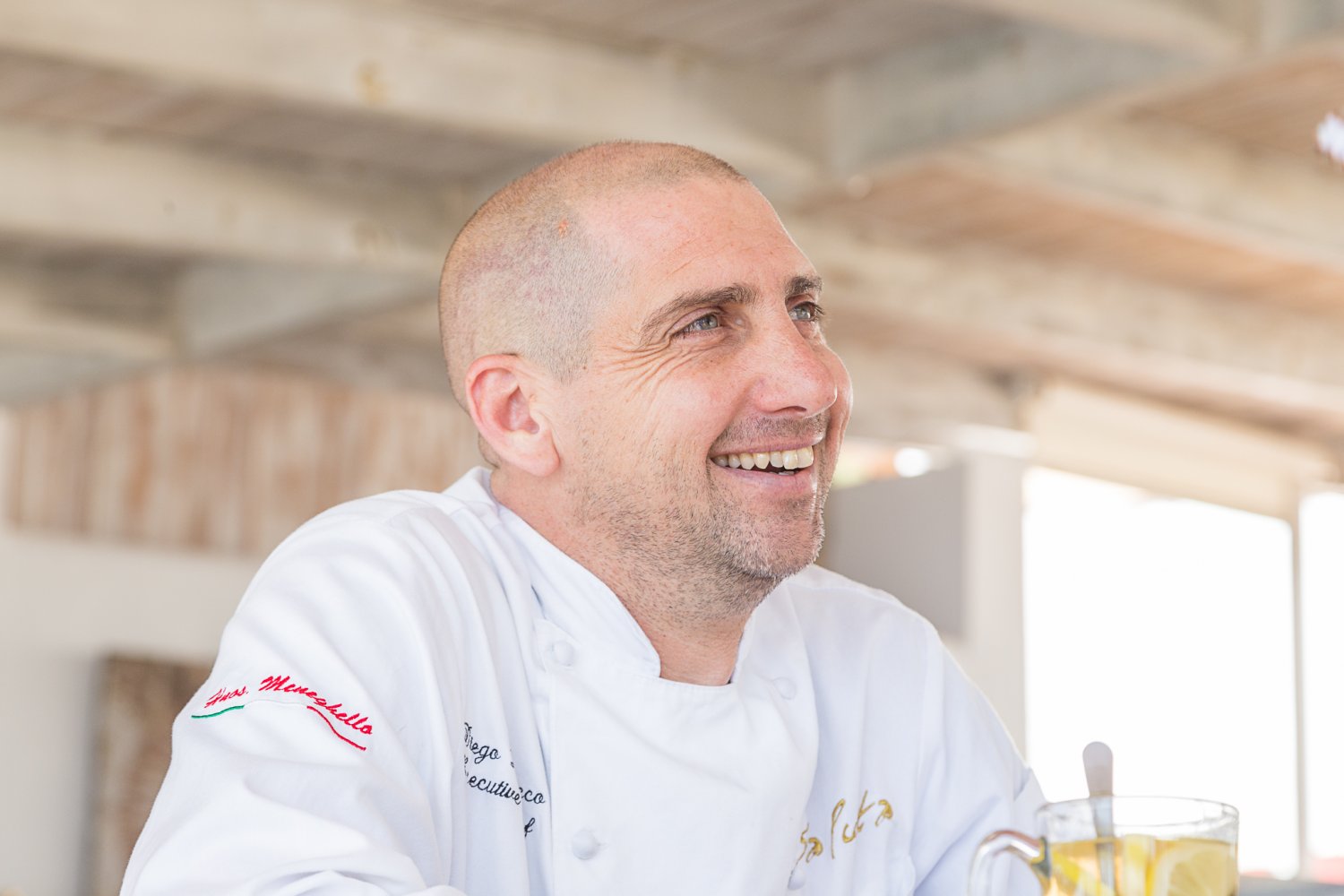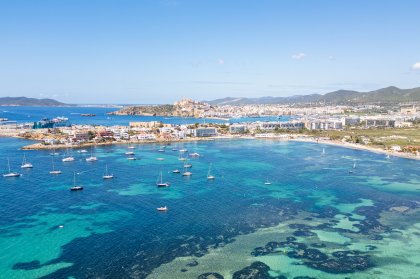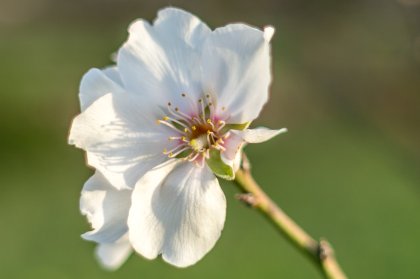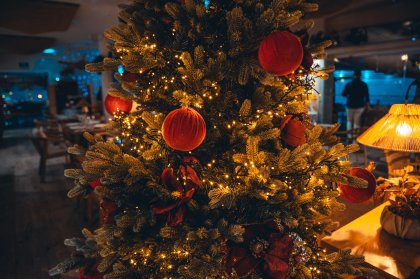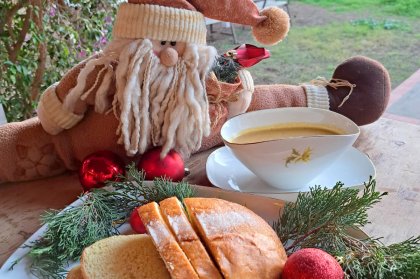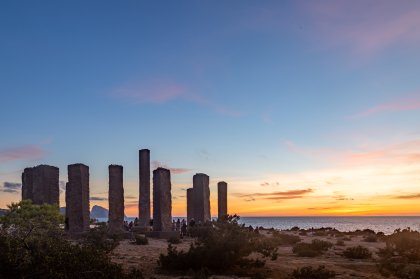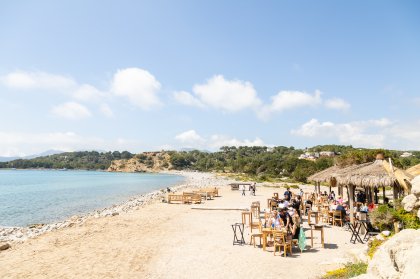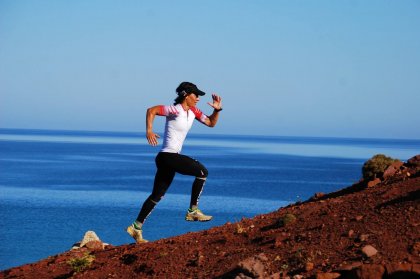Why did you become a chef?
“I studied International Relations and Foreign Trade then spent four years working for Dupont, importing titanium dioxide from Mexico. I realized that that was not my passion and I didn't like being in an office. I had always liked cooking for friends at home. I went travelling and realised that I wanted to be a chef. I spoke to my older brother and we both decided to follow the career of professional chefs and we both spent two years studying to be one at a very good school in Buenos Aires.”
How long have you been a chef?
"17 years."
What is your cooking background?
"My brother and I bought a restaurant and applied there what we learnt at the school. That was our training. A friend who used to come to the restaurant had worked some summer seasons on Ibiza and kept telling us ‘guys, you have to go to Europe and use the products they use there: the foie gras, the oysters, the red prawns, the crayfish.' So my wife and I came to do a a summer here. We're still here."
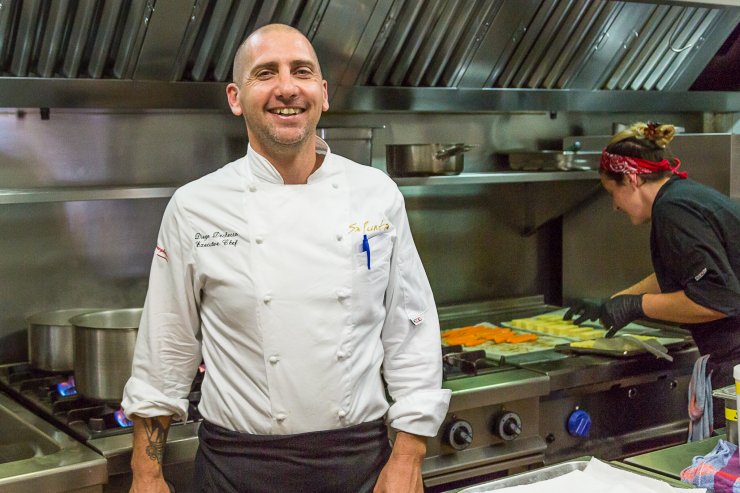 Diego in the kitchen at Sa Punta
Diego in the kitchen at Sa Punta
How has Sa Punta helped you grow as chef?
"It has been an enormous help working here, both professionally and personally. A lot of what made me what I am today started here. I wasn't used to working with a team of 15 people and even now, one of the most difficult parts of a head chef's job is to motivate his chefs. Then there's learning about new products, new cooking techniques, the day-to-day work and what it means to cook for 200 people every evening. For me it was a giant step in my career and I am very grateful for it having come into my life."
What inspires you when you are in the kitchen?
"The seasons: it's fundamental to nature. I am one of the chefs that thinks the less is more approach is the best; the less we mess about with a product, the better - that's where I come from. It's always better not to interfere too much with food, so that it becomes the star of the show."
What Ibizan star ingredients can you not do without?
"I think local red prawns are a superb Ibizan product. Ibizan lobster is also delicious as is the Amberjack, a fresh blue fish. Olive oil is of course very important in Mediterranean cuisine and salt is an essential in cooking. Many chefs forget to mention salt and the salt of Ibiza is fantastic. Many things can transform the flavour of food, but without salt it is nothing."
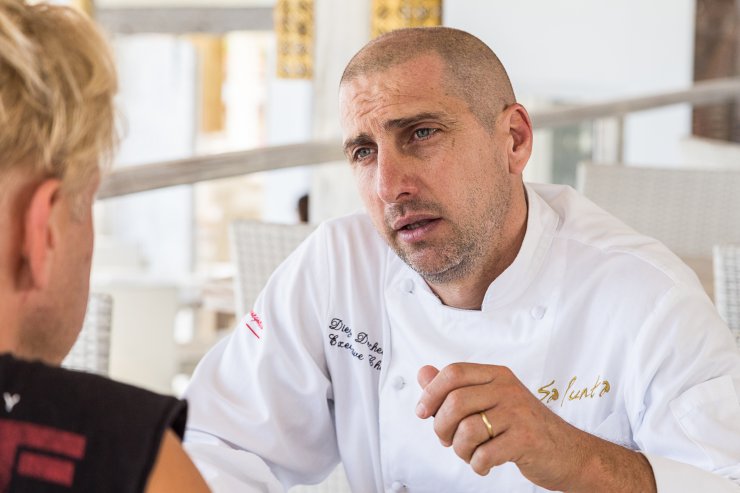 Diego waxes lyrical about cooking
Diego waxes lyrical about cooking
Which dishes are you most proud of at Sa Punta?
"There are many dishes. If I have to choose one, it might be the Panko breadcrumb encrusted lamb with a potato and truffle mille-feuille, very delicious. The red prawn carpaccio is also great and only uses the flavourings of flor de sal salt, olive oil and lemon. The black truffle and asparagus risotto is also a dish that I have always liked a lot. If I have to choose a star dish it's complicated because we have three culinary concepts: Mediterranean, Lebanese and Thai and there are many stars on each menu."
Which cuisine has influenced you the most?
"I trained in the French style of cuisine, so my cooking is very much influenced by its classic methods. I love Asian cuisine too, I love it, though the one I like the most is French: all the cooking basics come from there, all the cooking vocabulary too. It's the reference point from which I originate all my dishes and without this base you can't create new things well. From the French we know how to make a good pain au chocolat, a creme caramel and all their back catalogue of recipes and techniques inform all great restaurants. I have to know how to prepare food at a fundamental level in order to combine other world influences and that basis for me is always French cuisine."
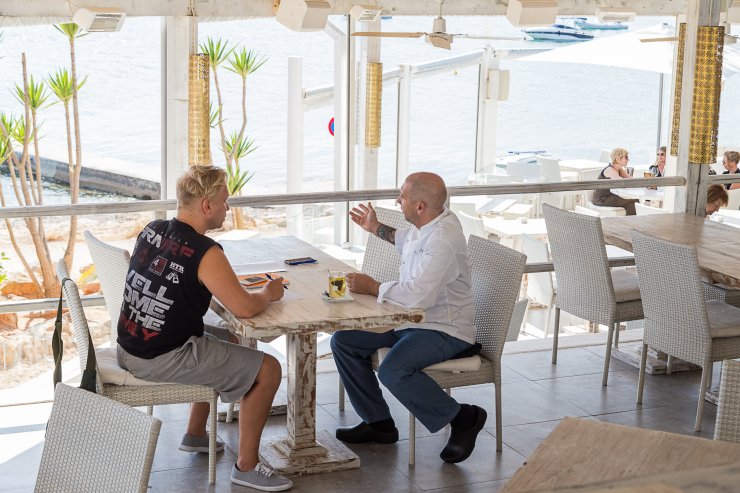 It's all about the Ibizan produce, according to Diego
It's all about the Ibizan produce, according to Diego
Argentina is famous for its meat: what are your tips for cooking a good steak?
"My first piece of advice would be to have enough good heat using wood to add flavour to the meat. I'd recommend using oak or olive wood, never charcoal. Then seal on both sides and cook it slowly so that it gets the flame in it, but is not over cooked. If it's a sirloin, it should be sealed and cooked very slowly for 20 minutes. Then it's really important to not cut it straight away and rest it so the juices stay inside the meat, I'd leave a steak at least for 15-20 rest time to ‘relax' the meat. As soon as you cut it, the blood will run out and that's the flavour, which is why you need to wait. Then after that a bit of good salt and a herb oil with something like rosemary, thyme, fresh oregano or sage. Finally. Accompany it with a good Malbec from Mendoza in Argentina."
What is your advice to someone who wants to be a chef?
"It's one of the most difficult professions that there is. A lot of TV shows give the idea that it's really cool, but there are a lot of hours to work and a lot of stress and it's very hot in the kitchen. To me though, it's a fantastic profession. It is one though that you need to have a true passion for. That passion will help you make it in this profession and that's the same for a photographer, journalist or whatever you want to be in life. In the end it all comes down to passion."
PHOTOGRAPHY | Peter Young
